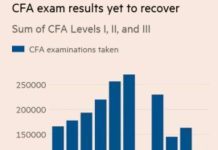Running a small business in Sydney comes with unique challenges and opportunities. The city is home to a thriving entrepreneurial community, but operating costs can be high, particularly for small businesses trying to establish themselves. Managing overhead expenses is critical for maintaining profitability and growth. Overhead costs, such as office rentals, utilities, and administrative expenses, can quickly eat into profits if left unchecked. By taking a strategic approach, small business owners can identify areas where they can cut costs without sacrificing productivity or quality.

Evaluate Current Expenses
The first step in reducing overhead costs is understanding where your money is going. Conducting a detailed audit of your expenses can reveal unnecessary spending or opportunities for savings. For example, small businesses often subscribe to multiple services or tools they no longer use. By cancelling these, businesses can free up valuable funds.
Reviewing utility bills is another key area where savings can be found. Sometimes, changing providers or negotiating better rates can lead to reduced energy and internet costs. It’s also helpful to look at office supplies. Bulk purchasing or switching to more affordable suppliers can help minimise these recurring expenses.
Creating a budget is a vital part of managing costs. Regularly tracking expenses against the budget will help business owners stay aware of their financial standing and identify trends that may require adjustments.
Leverage Flexible Workspace Options
Office space is often one of the largest overhead costs for small businesses. Traditional leases in Sydney lock businesses into long-term contracts and high rental fees, making it hard to adapt to changing needs. Flexible workspaces, like coworking spaces, offer a cost-effective alternative.
If you’re looking for a coworking space Sydney has a variety of options that offer affordable rates and modern amenities, making it an ideal solution for cutting office rental costs. These spaces also offer networking opportunities, which can be beneficial for small businesses looking to connect with other professionals.
Coworking spaces allow businesses to scale up or down as needed. Whether a business requires a private office for a small team or just a hot desk for occasional use, coworking spaces provide the flexibility to adapt without the financial strain of a long-term lease.
Adopt Digital Tools and Automation
Technology offers countless ways for small businesses to save money. Digital tools can streamline operations, reduce errors, and save time. Project management tools like Trello or Asana, for example, can help teams stay organised without the need for additional administrative staff. Communication platforms such as Slack reduce reliance on in-person meetings, saving time and boosting efficiency.
Automation is another area where businesses can cut costs. Automating tasks like invoicing, email marketing, or customer follow-ups reduces the need for manual labour, allowing small teams to focus on higher-value activities. Many of these tools are available at low costs and can significantly improve a business’s operational efficiency.
Outsource Non-Core Activities
Outsourcing can be an effective way for small businesses to reduce overhead costs. Tasks that aren’t central to your business, such as payroll, IT support, or marketing, can be handled by external providers at a lower cost than hiring full-time staff. Outsourcing allows businesses to access specialised expertise without the expense of recruitment, training, and employee benefits.
For example, rather than maintaining an in-house IT team, you can work with a managed IT service provider to handle technical issues. Similarly, marketing agencies can run campaigns and manage social media accounts without requiring additional resources. By outsourcing these non-core activities, businesses can focus their time and energy on growth and customer service.
Embrace Remote Work and Hybrid Models
Remote work has become increasingly popular, and for good reason. Allowing employees to work from home reduces the need for large office spaces, which can significantly cut costs. Businesses that adopt remote or hybrid models can save on utilities, furniture, and supplies.
For teams that occasionally need to meet in person, coworking spaces provide a cost-effective solution. Employees can use these spaces for team meetings or collaborative sessions without the financial burden of maintaining a full-time office. Remote work also offers employees flexibility, which can boost morale and productivity.
While remote work does require investment in reliable communication tools and technology, these costs are often far lower than maintaining a traditional office setup. Platforms like Zoom and Microsoft Teams allow employees to collaborate seamlessly, regardless of location.
Negotiate with Vendors and Suppliers
Vendor and supplier contracts can often be renegotiated to secure better rates or payment terms. Small businesses with longstanding relationships with their vendors may have more leverage than they realise.
Start by reviewing all existing contracts to identify areas for potential savings. For example, businesses that order supplies in bulk may be able to request discounts. If you have a good payment history, you might also be able to negotiate extended payment terms, which can improve cash flow.
Don’t hesitate to shop around for better deals. Comparing prices and services across multiple vendors can help you identify cost-saving opportunities. Keep in mind that loyalty to a single supplier is valuable, but competition can work in your favour when negotiating better terms.
Go Green to Cut Costs
Sustainable practices benefit the environment and can also lead to significant savings. Simple changes, such as switching to energy-efficient lighting or reducing paper usage, can lower monthly expenses. Encouraging digital communication and storing files electronically reduces the need for physical resources, cutting printing and storage costs.
Investing in renewable energy options, such as solar panels, can lead to long-term savings on electricity bills. Many government programs also offer incentives for businesses that adopt eco-friendly practices, further reducing costs.
By implementing green initiatives, businesses can also appeal to environmentally conscious customers. Demonstrating a commitment to sustainability can enhance your brand image and potentially attract more clients.
Reducing overhead costs is crucial for small businesses aiming to thrive in competitive environments. While the process requires careful planning and effort, the rewards can be significant. Whether by adopting flexible workspaces, streamlining operations through technology, or renegotiating contracts, small businesses have plenty of opportunities to cut costs while maintaining their operations. Thoughtful cost management can free up resources for growth and innovation, helping businesses achieve long-term success.
I am a writer based in London, specialising in finance, trading, investment, and forex. Aside from the articles and content I write for IntelligentHQ, I also write for euroinvestor.com, and I have also written educational trading and investment guides for various websites including tradingquarter.com. Before specialising in finance, I worked as a writer for various digital marketing firms, specialising in online SEO-friendly content. I grew up in Aberdeen, Scotland, and I have an MA in English Literature from the University of Glasgow and I am a lead musician in a band. You can find me on twitter @pmilne100.








































